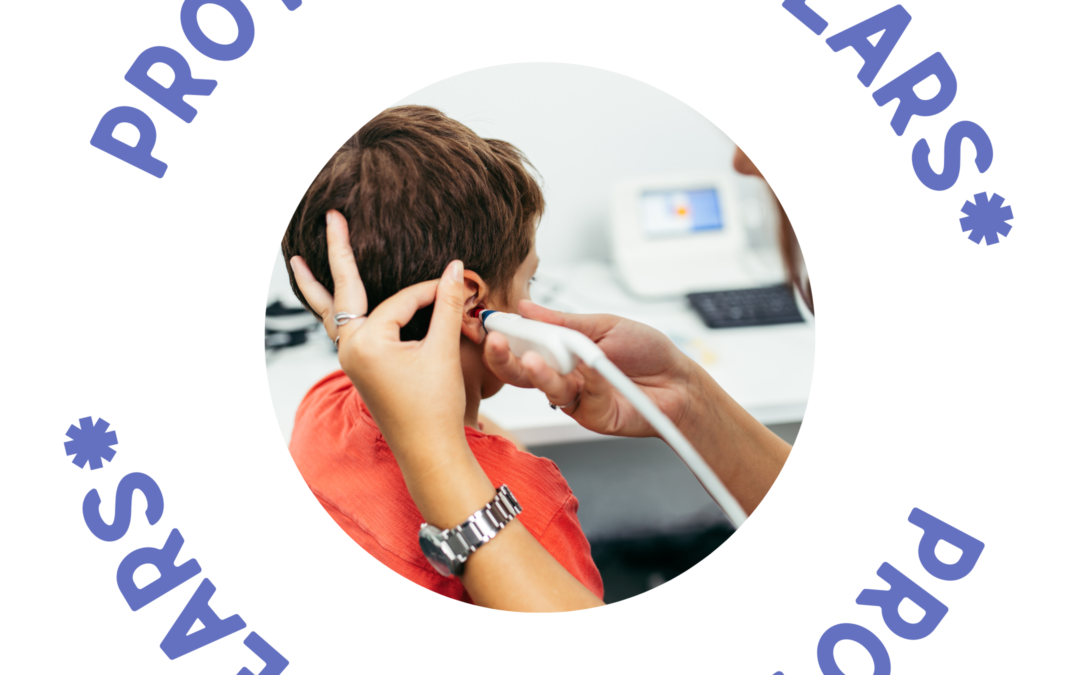Did you know?
The average person is born with about 16,000 hair cells within their inner ear. These cells allow your brain to detect sounds. By the time you notice hearing loss, many hair cells have already been damaged or destroyed. You can lose 30% to 50% of hair cells before changes in your hearing can be measured by a hearing test. Damaged inner ear cells do not grow back.
In addition to damaging hair cells, noise can also damage the auditory nerve that carries information about sounds to your brain. Early damage may not show up on your hearing test.
Although there is no treatment to restore normal hearing, you can prevent hearing loss.
Ways To PROTECT Your Ears:
Avoid loud noise
Wherever possible, we would recommend that you try and avoid any sounds above 85 decibels. This includes power tools, lawnmowers, motorcycles, helicopters, a baby’s cry and an alarm. The higher the decibel of the sound, the less amount of time it takes to damage your hearing. Exposure to loud noise, whether consistently over time or in one sudden impulse, is a major cause of sensorineural hearing loss. An abnormally loud burst of noise can physically perforate the eardrum whilst more consistent exposure can cause long-term, irreversible damage to the sensitive inner ear hair cells.
If you must be around a high level of noise, such as a concert or a noisy work environment, we would recommend that you wear some form of ear protection and distance yourself as much as possible from the source of the noise. Encourage those around you to act in a similar manner, especially children who won’t have the same level of awareness about the problem of hearing loss.
Avoid sharp objects
It might seem obvious, but one of the best ways to improve your hearing and avoid hearing loss is to avoid putting objects in your ear, particularly pointy or sharp ones. A lot of people like to clean their ears using a cotton bud (Q-tip) but this is a bad idea. Press too hard and your risk damaging the ear canal or rupturing the fragile eardrum.
If ear wax build-up is a problem for you, we would recommend that you see an ear specialist who can give you a safe and professional clean.
Exercise regularly
It’s well-known that exercise has enormous benefits for your health but few people realize the impact that it can have on your hearing and that it actually one way to improve your hearing. When you exercise, the blood flow to your ears increases. This helps to maintain the health of the inner ear hair cells which once damaged, cannot be helped or regenerated.
Your exercise doesn’t need to be particularly vigorous; it just needs to get your blood flowing around your body. You could go for a walk, do some gardening or even some gentle yoga. We recommend that you don’t use headphones to listen to music whilst doing this exercise as they have the potential to cause further damage to the hair cells.
Stop Smoking
Research increasingly suggests that smoking can have a negative impact on hearing. One Japanese study of 50,000 people concluded that those who did smoke were 60% more likely to develop high-frequency hearing loss than the non-smokers, and 20% more likely to develop low frequency hearing loss.
Consider the side effects of medicine
Unfortunately, some medication has been shown to have the side effect of hearing loss and so a way to improve your hearing might be to review the medication you are on. This includes antibiotics, antimalarial drugs and chemotherapy treatment. If you have any concerns regarding your medication, please speak to your doctor. They will be able to help you make an informed decision about continuing with the treatment, weighing its other advantages against your hearing loss.
